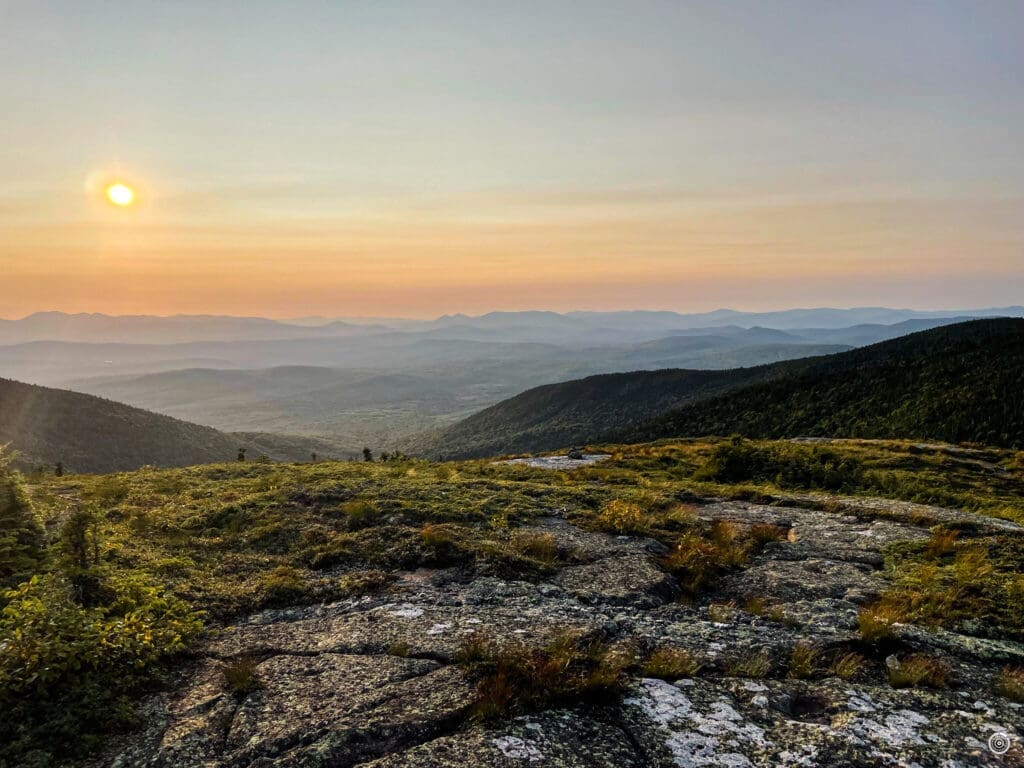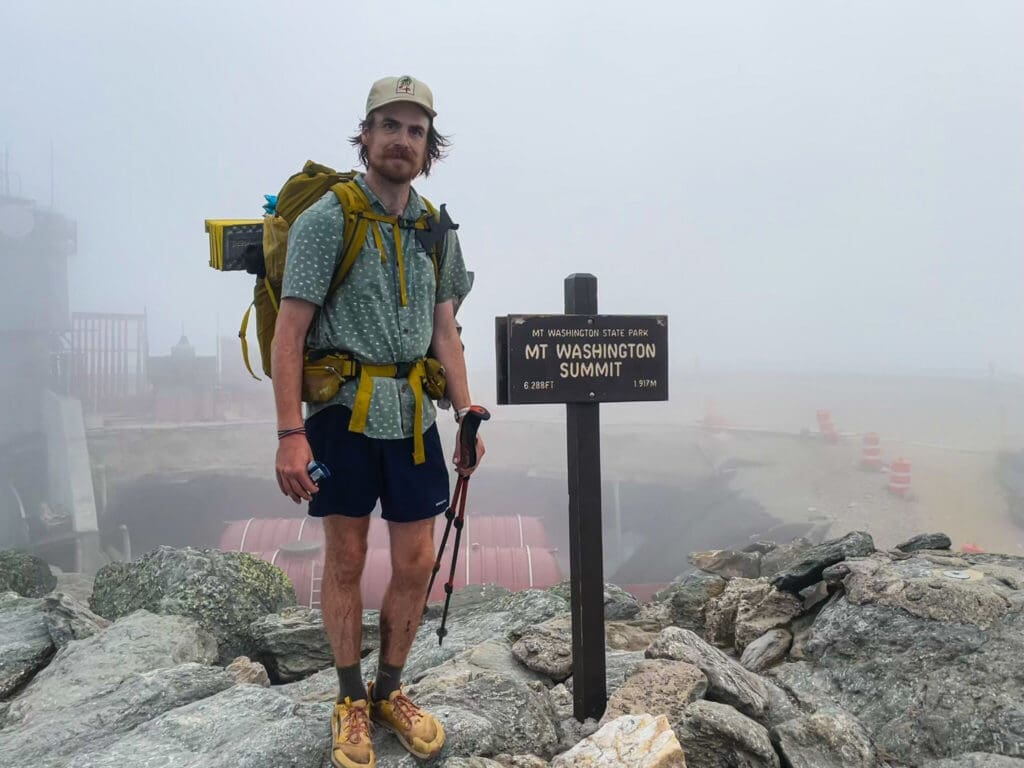
(Publisher’s Note: It was about this time last year when this young man was finishing his trek along the entire Appalachian Trail so he could return home for the holidays. It is also time when outdoor enthusiasts are contemplating going on the same 2,000-plus mile hike from Maine to Georgia, so we thought publishing this feature for a second time might help those in planning mode. Enjoy!)
It was his last conscious hour of each day he favored most during his days and evenings traveling a single soul’s path along ridges in Appalachia. Pack down, tent up, fire on, and more Ramen boiling defined done for the day, and that’s when Ryan Herron listened to where he was.
In the dark. Surrounded by the unknown. Silent.
There were twig snaps and the glowing eyes of critters close by, but there was quietness and darkness, too, in a place where one day’s beauty could become the next day’s disaster. There were waterfalls and river banks and mountaintops out there planted in nature’s ripples that only a microscopic hiking community knows well. Most of Herron’s 138-day journey was spent navigating more than 16 miles each day through 14 states before settling to rest.
And that was his favorite part, too. That’s what Herron misses most about trekking the 2,194 miles of the Appalachian Trail.
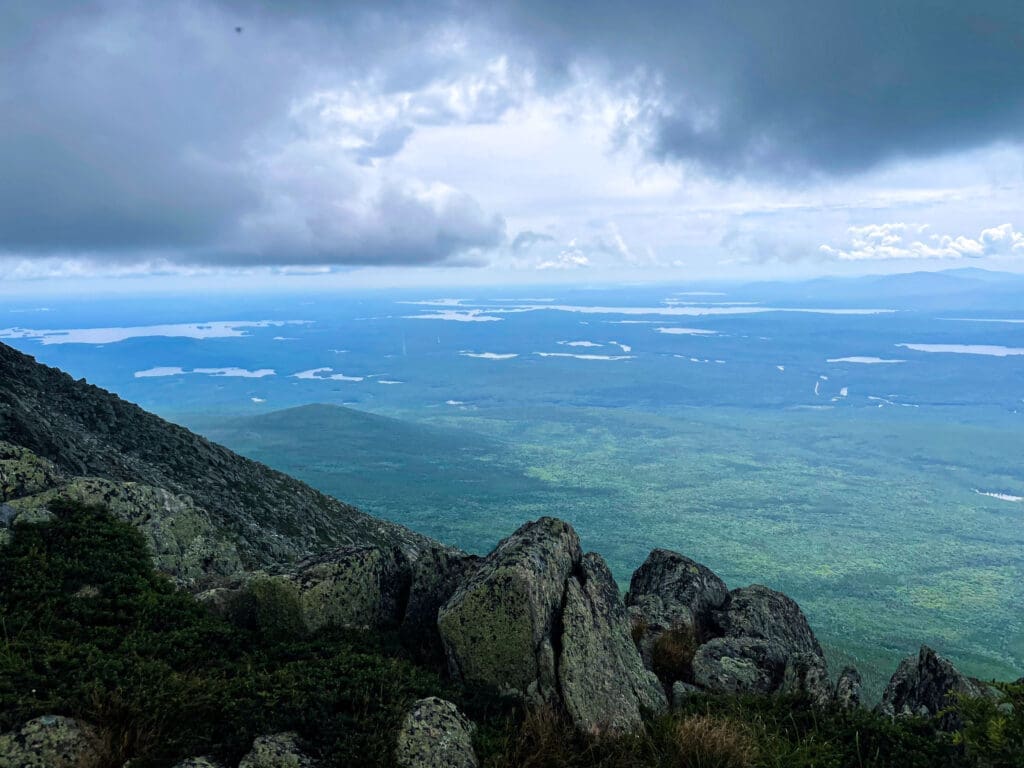
“After I would set up and finish eating, that time was my favorite. That’s what I miss most,” Herron revealed about returning home in late December. “I miss the time when I was out there and just hanging out at the end of the night. That last hour. There were times when I would listen to music while I made my dinner, but most of the time I would just listen to what was going on around me.
“It was different everywhere as far as what I heard during the nights when I did fall asleep pretty quickly once I was ready. I slept better when I was in my tent than when I was in one of the shelters that are along the trail,” the 34-year-old explained. “That depended on the weather, and sometimes, where I was on the trail. Mostly, it was very quiet and very dark. If there was no moon, it was dark-dark.”
Herron, one of three sons raised in Wheeling by City Manager Bob Herron and his wife, Dina, has been home for a few weeks and has been telling tales to local media about his rare adventure.
“It is very nice to be home for a lot of reasons,” he admitted. “The roof over my head and the ability to shower every day are things I’ll never take for granted again. While you’re out there, I guess you get a little nose-blind, as far as your own stench is concerned.
“But, yeah, that can get a little rough out there. So … it’s nice to be home for a lot of reasons.”
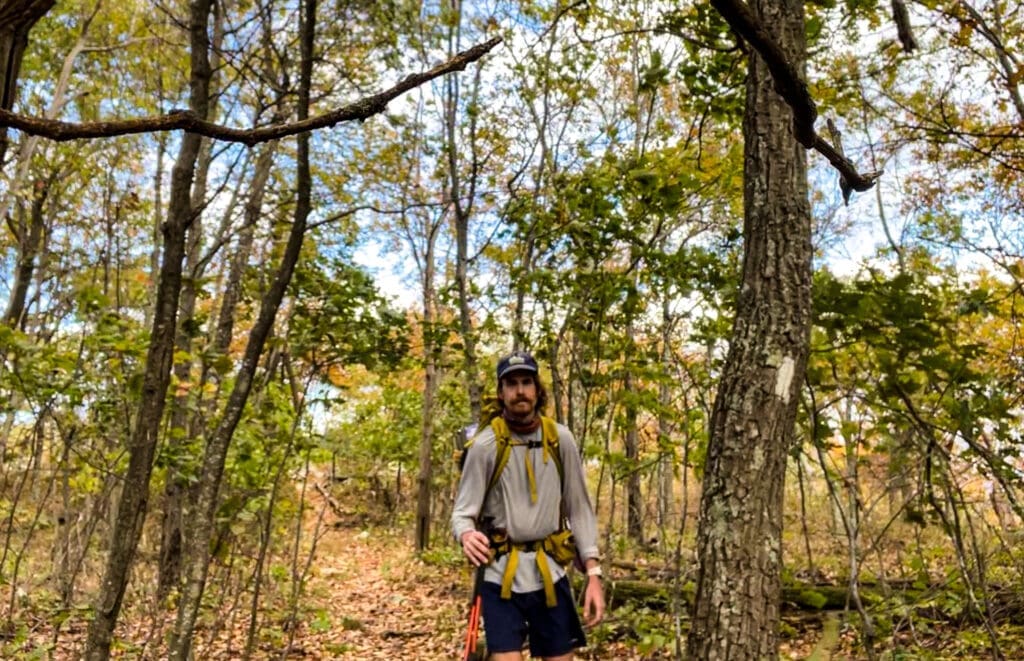
Granola Gets Old
A “Southbounder” was the label he accepted when beginning his trek at the northern tip of the trail at Mount Katahdin, Maine, and much of his first two months were spent staring at beauty he’d never witnessed despite his life in West Virginia and his weeks hiking the Smokey Mountains. The 100-mile stretch of wilderness is known widely as the most difficult climb along the A.T., but even now when describing those views, Herron looks away as if he’s gazing again.
“Only in photographs had I seen anything like that,” he said. “And there it was, right in front of me.”
Then, though, the mountains became monotonous. Just steps. Up and down. Mud, dirt, rocks, water. One after another. And again. Boring, no, because of the constant attention to stave away injury, but repetitive, yes, and at times Herron went days without human interaction since “Northbounders” seldom dared the direction that late in the season.
It was during lonely nights when Herron would resort to podcast programs he’d recorded while refueling in trail towns.

“I have a couple of shows I like to listen to, and I have a playlist with like 400 songs on my phone, too,” he said. “But I really liked listening to Tom. T. Hall out there. I started listening to Tom T. Hall a couple of years ago after a friend played a few of his songs, and I really like his music.
“I listened to other things too, but it’s pretty cool just listen to where you are sometimes. It depended on the weather, too, and there were all kinds of weather.”
Most often, though, Herron joined others along the path and camped in shelters or lean-tos or in his own tent. While his lunches most often were on-the-move meals of protein bars and tubes of peanut butter, dinner was a sit-down bowl of something warm.
“Mostly Ramen,” Herron said. “Sometimes I would try something else, but it has mostly been Ramen, and sometimes the chicken. And I would change it up. Sometimes I would have it with a lot of water if I wanted to save some of the warm broth for a cold night, and other nights just a little water. I was just trying to break it up.
“But I have to tell ya, the powder for the shrimp Ramen looked really weird to me. I couldn’t bring myself to even try it.”
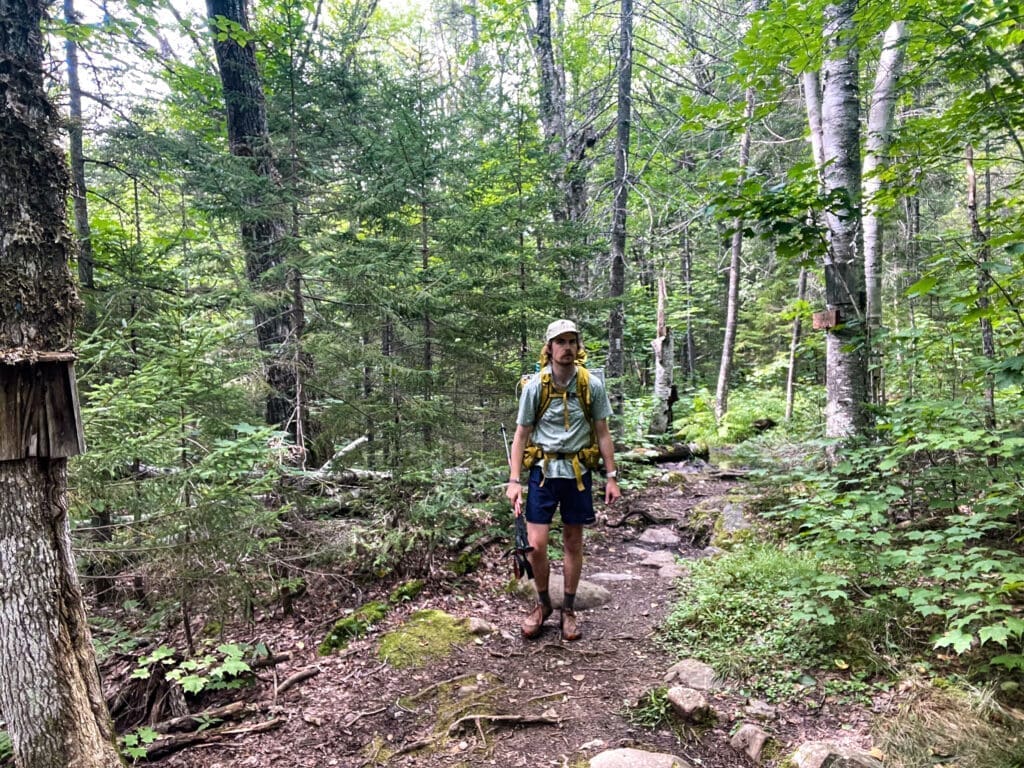
Home for the Holiday
Ryan was a week late according to the final version of “The Plan,” not arriving at the finish line in Georgia until a few days before Christmas. He was on trail for Thanksgiving and Halloween and the college football’s regular season, and he knew before dropping out of New England that his calculations were off ever-so-slightly.
Hours added up, though, and Herron readily admits he wasn’t the early riser many seemed to be during his four months riding the region’s Appalachian ridges. He also chose not to test often the trail at night but instead, he planned according to resources.
“Water had to be on your mind and there were stretches where water was tough, and I had to figure out some things. It was tough in the middle of Pennsylvania and in Virginia,” Herron recalled. “And some people really enjoy night hiking with headlamps, and you can see the glow of a lot of eyes out there at night, but I didn’t do a lot that.
“Instead, each evening I would think about what was coming up on the trail the next and plan the best way to go about the next town and what I was needing at the time. That’s when I followed news and stuff like that on my phone when I had signal,” he explained. “For the most part, when you’re on the A.T., the A.T. has to be what you’re thinking about.”
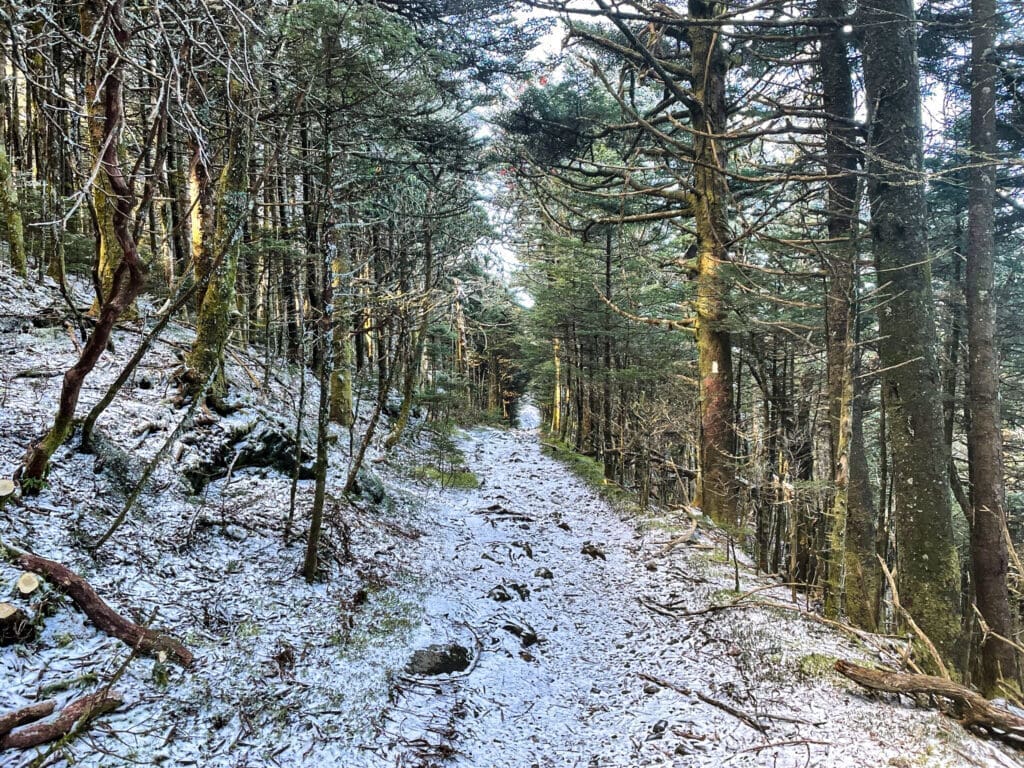
He went in knowing the mileage. He was aware of creek and river crossings. He even planned a trek into the nation’s capital. Herron knew he was vulnerable with every step he took, too.
“I did all the research so I knew what kind of wildlife I could encounter, and I did see one bear, deer, raccoons, and other animals you expect in the woods in this part of the country,” Herron said. “But the thing that scared me the most was coming done with a tick-borne illness or suffering a stupid injury that I could have prevented by being more careful.
“The trail is a constant challenge so I knew getting hurt was possible, and there were some falls and small injuries,” he reported. “But there was nothing that could have knocked me out. That’s really what I feared the most.”
